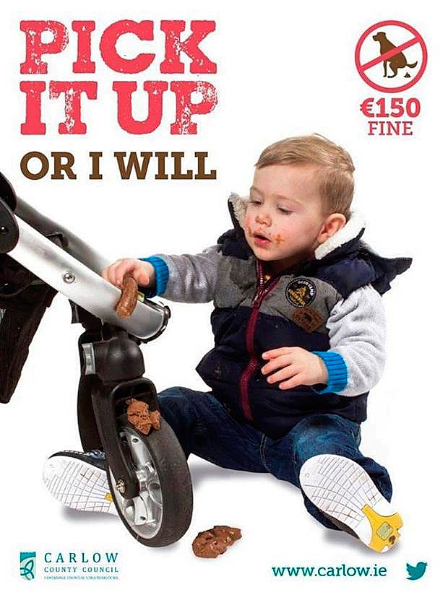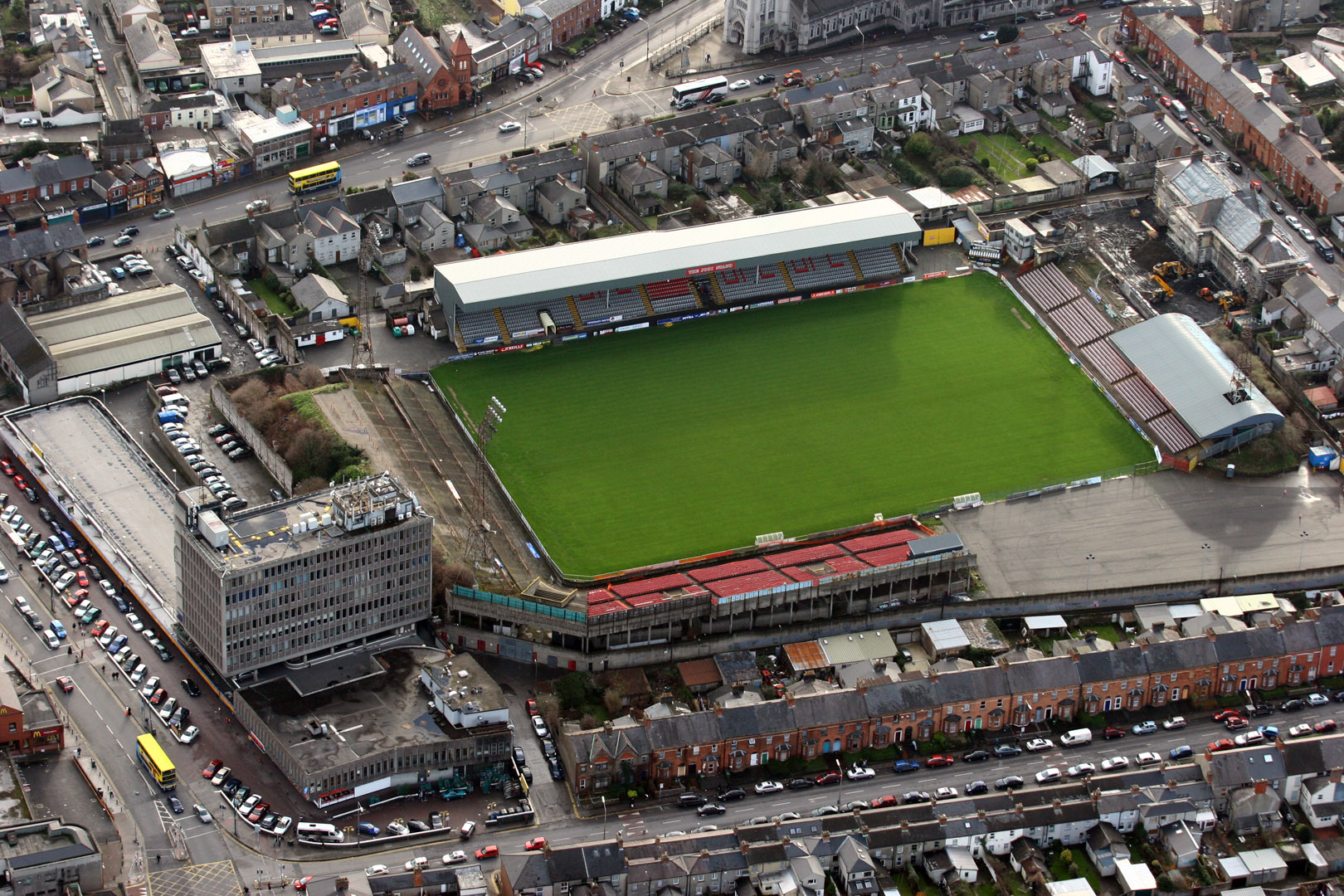COMMENT: Will shock tactics work on lazy dog owners?
Dublin People 19 May 2017
THIS is one of the controversial posters recently unveiled by a local authority to help combat dog fouling in public places.
Understandably, the hard-hitting images have polarised opinion, with some deeming them to be too graphic. But Carlow County Council has defiantly stood by its campaign, saying they have heard every excuse in the book from irresponsible dog owners who fail to clean up after their mutts.
Clearly, something drastic had to be done to hammer the message home (we don’t respond well to subtlety in this country).
It remains to be seen if the posters will have an impact in terms of encouraging better behaviour but I suspect that other local authorities will be watching with interest.
The problem in Dublin is nearing epidemic proportions. A short walk to the local shop means having to navigate an obstacle course of fouled pavements or grass verges. Parents with buggies find it particularly infuriating, as do wheelchair users or people with mobility or vision problems.
Our kids carry it into their homes and classrooms, unaware of the potential health hazard they are exposing themselves and others to. The reality is that dog fouling is not just disgusting and unsightly – it’s potentially dangerous.
The HSE provides information about Toxocariasis, an infection that can cause serious illness, including organ damage and eye disease. In extreme cases, it can lead to blindness and even death.
Infected cats and dogs shed Toxocaro eggs in their droppings. Children – being children – become infected by swallowing dirt which has been exposed to these eggs.
People with Toxocariasis may experience high temperature, stomach pain, breathing difficulties, organ damage, vision problems, eye pain or red eye.
In researching this topic, I was also shocked to learn that infected eggs in dog faeces can remain active in the soil for many years.
And as we know, young children are most likely to put things in their mouth and are less inclined to wash their hands in the absence of parental instructions.
In this context, the images depicted in Carlow County Council’s posters seem pretty innocuous.
Perhaps in future awareness campaigns, a photo of a seriously ill child in a hospital bed might be an even stronger message to convey.
While dog owners should accept personal responsibility for cleaning up their canine’s mess, local authorities also need to step up enforcement measures and increase the number of bins available on popular walking routes.
Councils should reduce the number of traffic wardens pounding the pavements and instead redeploy staff to the area of dog control. Serial offenders need to be caught, fined and – in extreme cases – have their dogs taken off them.
Without proper enforcement, no amount of shock tactics will work on lazy, inconsiderate dog owners who will continue to be a menace to society.
t.mccullagh@dublinpeople.com











